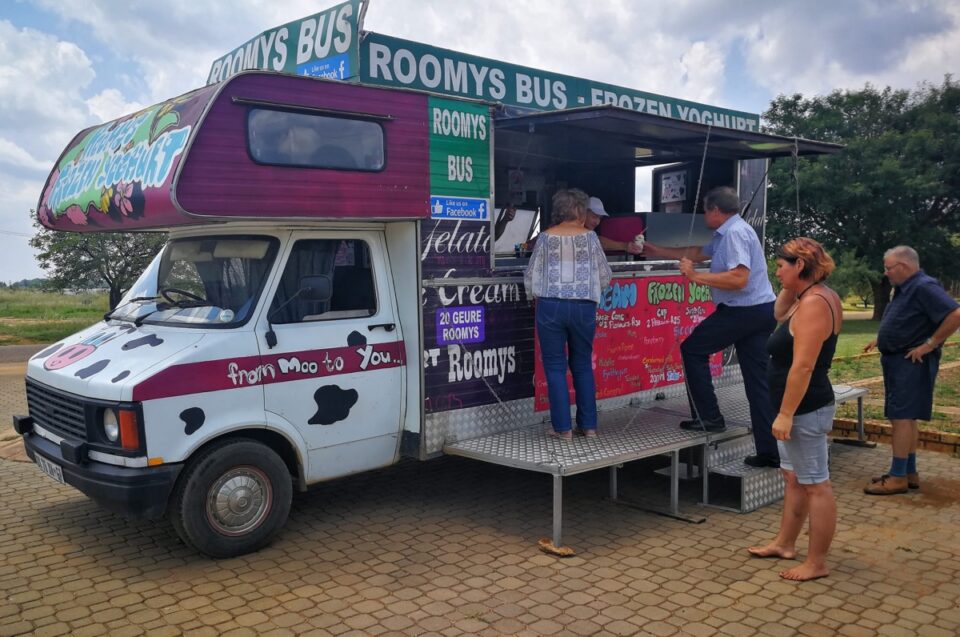
Explore the Afrikaner-ONLY township of Kleinfontein
The Afrikaner-only township of Kleinfontein is defending its legal status, stating that it does not receive basic services from the City of Tshwane…

Located in the small town of Rayton, Kleinfontein is an Afrikaner-only township. Founded in 1990, as Apartheid was ending, it spans over 900 hectares in northeastern Gauteng and is home to 1,500 residents.
Founded three decades ago by members of the Boere-Vryhyeidsbeweging, with the express intention of forming a whites-only homeland, Kleinfontein draws an obvious parallel to that of Orania, another fiercely nationalist town in the Northern Cape.
Despite media outlets calling it the Afrikaner-only township of Kleinfontein, with “various types of housing, including shacks, RDP and wooden houses,” if you visit the Friends of Kleinfontein page on Facebook, it portrays a far more serene settlement. There are images of old-style Apatheid flags, wildlife and pretty sunsets. And men and women working for the betterment of their community – building roads, fixing plumbing and building important infrastructure.
AFRIKANER-ONLY TOWNSHIP OF KLEINFONTEN
However, the Afrikaner-only township of Kleinfontein is now in the crosshairs of the City of Tshwane. The High Court in Pretoria was recently asked to step in and enforce bylaws after the Afrikaner-only township of Kleinfontein was declared illegal, reports The Citizen. But the residents have defended themselves saying their land is zoned for agricultural use and the enclave is not illegal.
Director and shareholder of the settlement Dannie de Beer argues they’ve received nothing from the City of Tshwane, nor do they want anything. Thus its exact intention to be recognised as a separate homeland. He explained the land was bought before the City of Tshwane came into existence.
WE JUST WANT PEACE
Little is known about how culturally independent life behind its walls works. But a window into the secretive Afrikaner-only township of Kleinfontein can be found through its Facebook page. At the entrance are statues of former Prime Minister Hendrik Verwoerd and former President Paul Kruger. Residents are reported to be living in various types of housing, including shacks, RDP-equivalent houses, wooden houses and townhouses. The settlement has its own electricity, water and municipality.
Moreover, Kleinfontein boasts rugby fields, tennis courts, a large solar energy plant and independent wastewater system and water supply. Images on social media show plentiful wildlife, a fishing dam, picnic area and a community hall. Residents enjoy communal potjies together and regular visits from the ice-cream van. But how does it run and what does the City of Tshwane want to do with it?
SHARE BLOCK SCHEME
“First Kleinfontein was a closed corporation. Then a company, then a corporation, and now it’s a share block scheme, like Orania. The company owns all the land and assigns portions to community members,” noted de Beer. Despite millions spent in legal fees to resolve the dispute, government keeps going after them.
De Beer says problems for the Afrikaner-only township of Kleinfontein started when disgruntled former residents started inciting people not to pay their levies. A case was brought forward, and the city was ordered to apply bylaws, which questioned the validity of the Kleinfontein’s township status.
Meanwhile Obakeng Ramabodu of the EFF has said: “The city must act without delay to enforce all planning and building regulations. This includes ensuring the land is properly rezoned and subdivided and that building plans are in accordance with legal requirements.”
